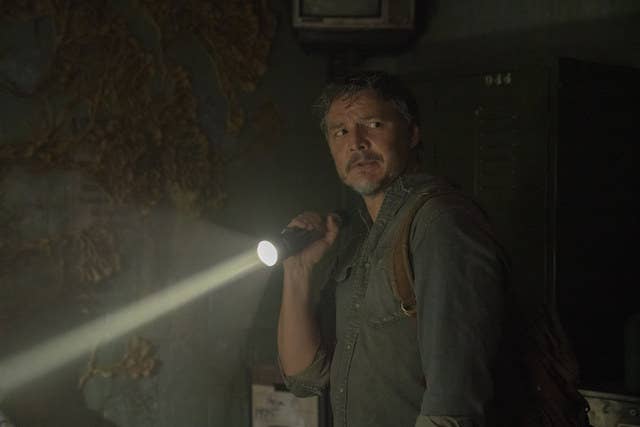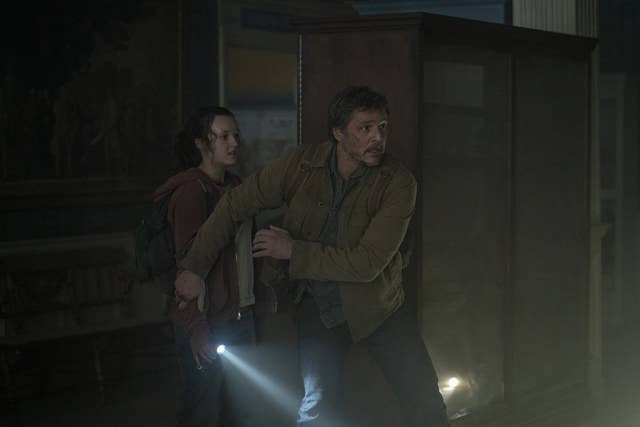
The Last of Us, HBO’s TV adaptation of the bestselling 2013 video game of the same name, comes out on Sunday. The pressure is on: The series is contending with the scrutiny of devoted fans; the shadow of a film adaptation shelved in 2016, and Hollywood’s decadeslong history of turning beloved video games into shows and movies that range from dull to embarrassing. Warcraft, the highest-grossing film adaptation of a video game since 2016, boasts nearly $440 million in box office revenue but didn’t even break even because of marketing and distribution costs. And, to add insult to injury, it got a paltry 28% score on Rotten Tomatoes. In 2019, the first trailer for Sonic the Hedgehog drew such immediate and passionate online vitriol — mostly about Sonic’s upsettingly human teeth — that director Jeff Fowler spent an extra three months and $5 million editing the movie to look less creepy.
The challenge with any adaptation is to appeal to two audiences: one who knows the story really well, and one who doesn’t know it at all. But the challenge seems especially potent here, because The Last of Us is a famously excellent, genre-defining feat of storytelling. Fans and critics seem to think if any adaptation could “break the video game curse,” it would be this one.
The Last of Us is set in a postapocalyptic world in which a fungal pandemic turns infected people into zombies. It centers around two heroes: Ellie (Bella Ramsey), a defiant teenage orphan who seems immune to the fungus, and Joel (Pedro Pascal), her grim protector, who lost his daughter 20 years before in the initial outbreak. As they travel together across the country, hoping to smuggle Ellie to doctors who can use her genes to create a vaccine, their oddball pairing deepens into loyalty, then into familial love. Their relationship is the narrative heart of the game, as well as the series. It’s their mutual protectiveness, and their empathy for each other’s survival instincts, defensive tempers, and traumatic pasts, that leads them to commit acts of violence on each other’s behalf.
Neil Druckmann, the creator of the video game, has received widespread critical acclaim bordering on reverence for his attention to the craft of storytelling. Fans credit his singular vision as an auteur for the game’s nuanced characterization and moral ambiguity. But for the HBO series, he’s found an ideal co-creator in Craig Mazin, who was behind Chernobyl, the Emmy-winning HBO miniseries about the nuclear disaster in 1980s Soviet Ukraine. In prior interviews, Druckmann and Mazin have spoken about their shared obsession with games and films alike, their distaste for filler, and their love for a decisive ending.
Their artistic synchrony is the foundation of the HBO show’s creation myth. As the story goes, Druckmann’s meticulousness as a storyteller, as well as his suspicion of media execs who prioritize making a profit over making art, has prevailed over possible collaborators time and time again. When he was building the original game, he insisted on a single narrative for The Last of Us, in stark contrast to the gaming world’s affection for “open world” formats, where players can roam where they choose. He received pressure from his bosses to turn the epic, bloody finale of The Last of Us into a choice between two endings, but he maintained that Joel’s character development made a dark, climactic turn inevitable. The result was a game where players had to confront Joel’s predetermined decisions in all their complexity. And fans loved it.

As for adapting The Last of Us, Druckmann was similarly reluctant to lose the core narrative of his game. The film adaptation was announced in 2014, optioned by Screen Gems and set to be directed by Sam Raimi, of Spider-Man fame. But Druckmann found it nearly impossible to distill the plot of the game, which took 15 hours to play, into a two-hour movie. And he chafed at the studio executives’ encouragements to make the action sequences splashier at the expense of developing the relationship between Joel and Ellie.
So Druckmann’s decision to entrust his baby to the world, again, is a good sign of a faithful adaptation in the original spirit of the game. And the show is well worth the mythology of its drawn-out creation. The Last of Us is very, very good. Almost certainly, fan reactions will be split between people who are loyal to the game and people who had no prior knowledge of it. As a person in the latter category, I have no gripes with how the show has deviated from the game, but I was impressed with how seamlessly the show built and burst my expectations, over and over again. As it progresses from episode to episode, it keeps building out its sociopolitical landscape in increasingly complex, newly terrifying ways. Within each mini world it builds, it knows how to misdirect you, and it delights in doing so.
It’s hard to say what it would be like to watch this show as someone who already knew the story — someone who had already battled their way through Kansas City and Silver Lake, who knew which terrors were coming, and when, and where. Much of the delight of watching this show comes from how well it anticipates what you think is going to happen before launching into a devastating twist. Its measured tone — never sentimental, never hopeless — and its impressively precise timing, sustained over nine roughly hourlong episodes, make the experience of watching it satisfyingly unpredictable. How much of that is a testament to the expert handling of the adaptation, or to the loving construction of the original game?
But my favorite part of the show did turn out to be a new addition to the canonical story of the game. The third episode of The Last of Us fleshes out the story of Bill (Nick Offerman, in a fantastic subversion of his own typecasting), a gruff, no-bullshit doomsday prepper (or survivalist, depending on who you ask). It’s a pitch-perfect 45-minute sequence. I shed a couple of unexpected tears; then I broke into a full-body sob. This one story showcases all of the series’ greatest strengths: clever, purposeful timing, a convincing argument for hope in a bleak universe, and an intimate portrait of mutual caregiving as the most transformative kind of love.●
